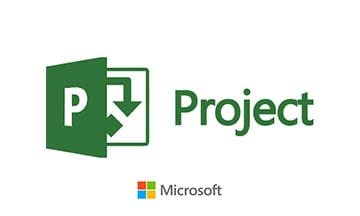Agile Coach Training Course
Course Overview
An Agile Coach is a change agent and a key enabler inside the Organisation. They work with all levels of the organisation, right from executives to the development teams. Agile Coaches are professionals, who help the teams, to go beyond their own limits, and challenge themselves to higher excellence.
How do you become an agile coach?
An Agile Coach requires a deep understanding of the Agile principles, manifesto and values, along with the array of frameworks, measurement and tools. Depending on a team and the product, the Agile Coach would need to have the capability to tailor existing frameworks. They might even have to create a fitting new framework, from scratch.
The Coach endeavours to enhance team practices, through considerate engagements, and in a sustainable manner, to direct the team to focus on the organisation’s goals and objectives. This training will provide a foundation in creating the conditions necessary for a successful Agile transformation. It will empower Coaches on how to form and support agile teams to achieve better results. They will show employees how to lead the cultural and behavioral changes, that will enable organisations to gain the benefits of Agile product delivery.
This course consists of practical case studies and hands-on exercises to help Coaches, to understand how to best support, guide, and coach their teams to improve their agile capabilities. The course will help them to master the skills to enhance, the awareness of business goals, and objectives as a teacher, facilitator, mentor, and team builder – The core competencies of an Agile Coach.
Which certification is best for agile coach?
This Zoe training course is driven by the practical experience of industry experts, whose expertise adds immense value to the course and to your learning experience. The course content is aligned to industry standards and requirements, as well as the needs of today’s practitioners. A key part of this course focuses on developing high-performance teams using coaching skills practiced in the training, which helps to facilitate meaningful collaboration and healthy conflict resolution. The theoretical knowledge is supported by examples, exercises, and case studies, to drive practical application, and rapid skill-building of participants.
Participants will be awarded the Agile Coach certification upon successful completion of this course, endorsing the knowledge and fundamental application of Agile Coach practices.
Course Objectives
The key objectives of this course are to empower Agile Coaches with:
- An overview of the Agile practices, Coaching techniques, and the fundamental skills that an Agile Coach must have to be a catalyst for change in an organisation
- Clarity of the role, responsibilities, and the mindset of the Agile Coach
- The capacity to coach and offer right knowledge, at the right time, in the right way, so that teams are able to best comprehend the knowledge
- The required skill, knowledge, and perspective to partake in effective Agile strategy for the organisation, and to ensure successful implementation of plans and projects as per the strategy
- The required confidence and knowledge to play a key role in executing initiatives and activities as an Agile Coach
- The development of individual “style” of coaching, facilitating, mentoring, and teaching
- The mindset-shift necessary to improve team dynamics, focus on value-driven delivery, and leveraging constraints whilst staying curious, being innovative, and having fun
- The practical skills to assist Agile teams, in removing impediments to ensure successful Agile delivery
- Techniques on how to effectively build powerful Agile teams
- Knowledge on how to effectively handle conflicts, resistance, and dysfunctions within and across teams
- Capability to develop mutual trust within your organisation
- Facilitation skills to enhance better dialogues between all stakeholders
- A sense of pride, in playing a crucial part in increasing, and establishing the credibility of the Agile Transformations
Training Methodology
This collaborative Agile Coach Certification Course will comprise the following training methods:
- Lectures
- Seminars & Presentations
- Group Discussions
- Assignments
- Case Studies & Functional Exercises
Like all our acclaimed courses, this program also follows the ‘Do-Review-Learn-Apply’ model.
Organisational Benefits
Organisations can benefit, from individuals who take this course, in the following ways:
- Leaders and Coaches who are effective in Agile strategies, and team dynamics in addressing the precise requirements, and needs of the organisation
- A change agent that addresses the empirical change needed in the workforce, to enable a culture in which teams can deliver quality outputs
- Development of high-performance teams using Coaching skills practiced in the training.
- A Coach who enables highly skilled cross-functional teams to work at an accelerated speed, in turn, maximizing their potential
- Increased stakeholder satisfaction because of increased credibility in delivering Agile Transformations
- Exponential business growth due to improved, high-quality products, delivered as per Customer expectation
Personal Benefits
Professionals attending this course will benefit through the following ways:
- Be an Authentic Leader, and a change agent that enables a culture in which teams can flourish
- Better understanding, awareness, and knowledge of the importance and impact of Agile principles and practices, to able to Coach & Mentor the organisation on the benefits of it
- Enhanced skill and knowledge to partake in devising an effective Agile strategy and to ensure successful implementation in one’s organisation
- Ability to facilitate your team, guiding them through the paradigm shifts required in Agile environments
- The ability to remove an impediment, challenges, roadblocks and enhance the team’s collaboration
- Increased awareness and perspective to choose the most effective Agile approach or method for one’s organisation, demonstrating talent and potential and increasing opportunities for Leadership opportunities
- A sense of pride and satisfaction in playing a critical role in contributing to the overall success of the organisation
- To get certified and recognised internationally, as an Agile Coach
Who Should Attend?
The Agile Coach Certification course is for:
- Top management and executives, of an organisation who need to understand the principles, methodology, and importance of an Agile Coach
- Experienced Scrum Masters, Project and Program Professionals, or Iteration Managers who aspire to become an Agile Coach
- Functional Managers, and Product Owners, that are interested in developing as an Agile Coach, and earning their recognition, through certification
- Agile coaches, and Consultants who want to enhance and reinforce their professional skills as Agile practitioners and professional coaches
- Product team development members, who will be actively involved in delivering Projects
- Any Professional who wishes to expanding their knowledge and purse career as an Agile Coach
Course Outline
The course will cover the following areas:
Module 1: Agile Overview
- Agile vs waterfall
- Agile Principles and values
- Agile for products and services industries
- Adapting to changing requirements
- Scrum and Agile
- Mindset vs. framework
- The role of an Agile coach
Module 2: Creating an Agile Environment
- Agile Mindset
- Servant Leadership
- Servant Leadership responsibilities
- Team Composition
- Agile Team roles, responsibilities, dynamics
Module 3: Delivering in an Agile Environment
- Project Charter
- Retrospectives
- Backlog Preparation and Refinement
- Daily Stand-ups
- Demonstration / Reviews
- Planning for Iterations
- Execution Practices to deliver value
Module 4: Agile Frameworks
- Scrum intro: values, roles and artifacts
- Scrum overview
- Kanban Overview
- Lean Agile
- Xtreme programming
- Scaling Agile
Module 5: Measuring Agile
- Velocity
- Burndown Chart
- KANBAN Board
- Feature Chart
- Agile PMO
- Cycle time and throughput rate
- Measuring team’s health
- Assessing Agile maturity
Module 6: Organisational Considerations for Project Agility
- Organisation Context
- Drivers for Change Management
- Readiness for Change
Module 7: The Agile Coach
- Definition of Agile coaching
- The Agile coaching mindset
- Core Competencies and Personal Traits of a Successful Coach
- Responsibilities and skills of the coach
- Achieving self-awareness/self-management in the coach
- Setting boundaries for coaching
- Internal vs. external coaches
Module 8: The Coach as Facilitator
- Defining Agile team facilitation
- Designing and facilitating meetings for collaboration
- Facilitating full participation, collaboration and engagement
- Skilfully Facilitating the Agile Practices
- Facilitating team decision-making
Module 9: The Coach as Mentor
- Mentoring vs. coaching
- Mentoring and coaching the Agile team roles
- Understanding the individual change cycle
- Identifying and handling resistance from individuals
Module 10: The Team Coach
- Understanding team development model
- Detecting a team’s stage of development
- Progressing the team through the development curve
- Creating team Trust
- Continuously seeking to improve – Lean thinking
- Defining and identifying high performance
- Knowing and establishing team vs. group mindset/behaviours
Module 11: Communication
- Communication and communication-related issues
- Communication tools
- Facilitation techniques and common issues
Module 12: The Team Coach: Handling Conflicts
- Handling Conflicts within the Team
- Detecting and resolving issues
- Conflict facilitation
- Handle Organisational Impediments











